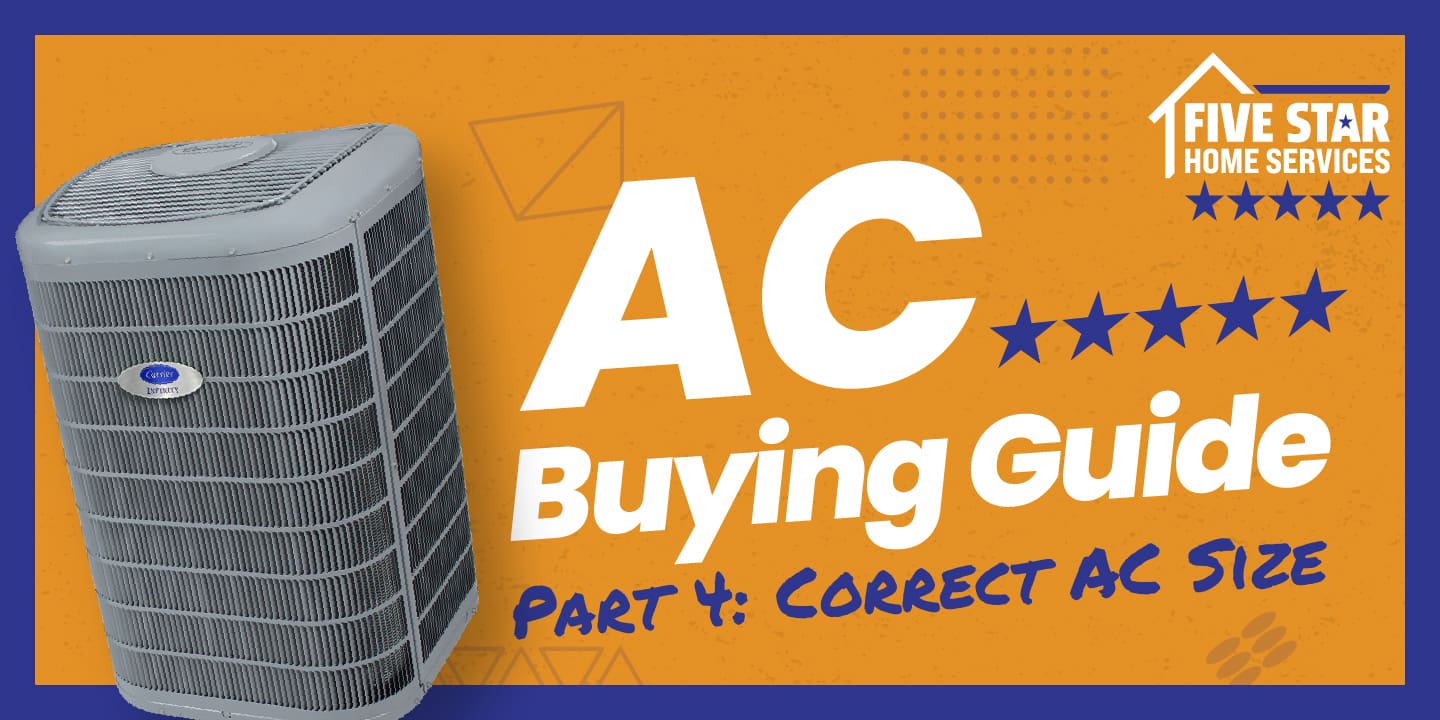There’s no question: Ohio’s hot and humid summers demand efficient home cooling systems, as we have discussed. Nevertheless, for homeowners in the Greater Columbus, Greater Cincinnati, and Greater Dayton areas, staying cool isn’t just about getting an air conditioning unit and the correct size.
Because of this, the importance of air conditioning tonnage should never be overlooked. Tonnage is a crucial concept that distinguishes between beating the heat and an uncomfortably warm household. It also affects the longevity of your system, how it runs, and much more.
In the following, we will unpack this concept of AC tonnage and explain why it’s essential for your home’s comfort and equipment and how it works. We will also equip you with the information you need to make more informed decisions regarding your air conditioning needs and who to trust.
What is AC Tonnage?
First, we should debunk a popular misconception regarding “tonnage.” Tonnage has nothing to do with weight in the air conditioning and HVAC world. The word ‘ton’ here refers to an air conditioner’s ability to cool. Specifically, one ton can cool 12,000 British Thermal Units (BTUs) in an hour.
Most residential air conditioning units range from 1 to 5 tons, a great deal of variance. Larger homes or those with high ceilings, lots of sunlight, or generally warmer climates may require more tonnage for efficient cooling, and vice versa for smaller homes. Getting tonnage right, nevertheless, is of the utmost importance, and we will explain why in the next section.

Why Does AC Tonnage Matter?
Air conditioning tonnage matters because it is directly related to the comfort levels inside your home and how your system operates. An AC unit that’s too small won’t be able to effectively cool your space on hot days, leading to unsatisfactory performance and overworked equipment. Overworked equipment doesn’t last as long and is far more prone to breakdowns. Conversely, a too large unit will cool the space quickly but won’t effectively remove humidity, leaving your home feeling damp and clammy. It also causes short cycling, which isn’t good for the equipment or the home either.
In any case, improperly sized AC units also increase energy bills. As noted, a unit too large will cycle off and on more frequently, using more electricity to start the system each time. Too small, and the continuous operation to reach the desired temperature can shoot electric bills through the roof.
Factors to Consider for Optimal Cooling Efficiency
Ohio’s climate ranges from humid continental to humid subtropical, meaning summers are usually hot and muggy. To find the right tonnage, consider the size of your home, the climate, insulation quality, windows, and even household habits.
A good rule of thumb is to have one of our HVAC professionals perform a Manual J calculation, which looks at all the variables — from square footage and ductwork to local climate and home orientation — to recommend the right sized air conditioner and get your tonnage down right so you don’t make the mistake so many others make when it comes to this critical understanding of proper sizing.
How Does AC Tonnage Work?
Air conditioning system tonnage reflects the efficiency of a unit for converting electrical energy into cooling power. Too much tonnage, and you risk short cycling, as we’ve discussed. This is when the AC turns on and off rapidly throughout the day without adequately removing humidity. Too little and the unit will run constantly, trying hard to cool down the house without much success. Choosing the right tonnage for your AC system means balancing several factors to ensure the system can maintain a comfortable temperature without wasting energy.
The Impact of Correctly Sized Air Conditioners on Home Efficiency
According to Angi (formerly Angie’s List), correctly sized air conditioners can reduce energy costs by up to 35%. This statistic is a powerful motivator for homeowners to understand the appropriate tonnage for their air conditioning units and the importance of hiring a professional like Five Star Home Services for proper sizing.
We encourage you to consider the case of a homeowner in Greater Columbus who replaced his old 3-ton unit with a more appropriately sized 2.5-ton AC after an energy audit. The result was a noticeable decrease in electricity bills and consistent indoor temperatures, even during Ohio’s most humid months. In fact, sometimes, the savings in an AC provider can pay for the equipment itself.
In Conclusion
AC tonnage is an essential component to consider when installing or replacing your central air conditioner. Getting it right means enjoying a comfortable, dehumidified home without unnecessary spikes in your energy costs.
Hopefully, this blog has shed some light on the mysterious world of AC tonnage and why it’s such a vital consideration for Central Ohio area homeowners. If you’re considering an AC installation or replacement, remember that investing a little time in understanding your cooling needs now can lead to long-term savings and comfort.
Before making any decisions, we encourage you to call our local HVAC professional to assess your home’s cooling requirements accurately. If you have additional questions about AC tonnage or HVAC systems, your local experts are here to help guide you to a comfortable and efficient home. So don’t hesitate to reach out and get the best advice for your specific needs. Remember to stay cool!


